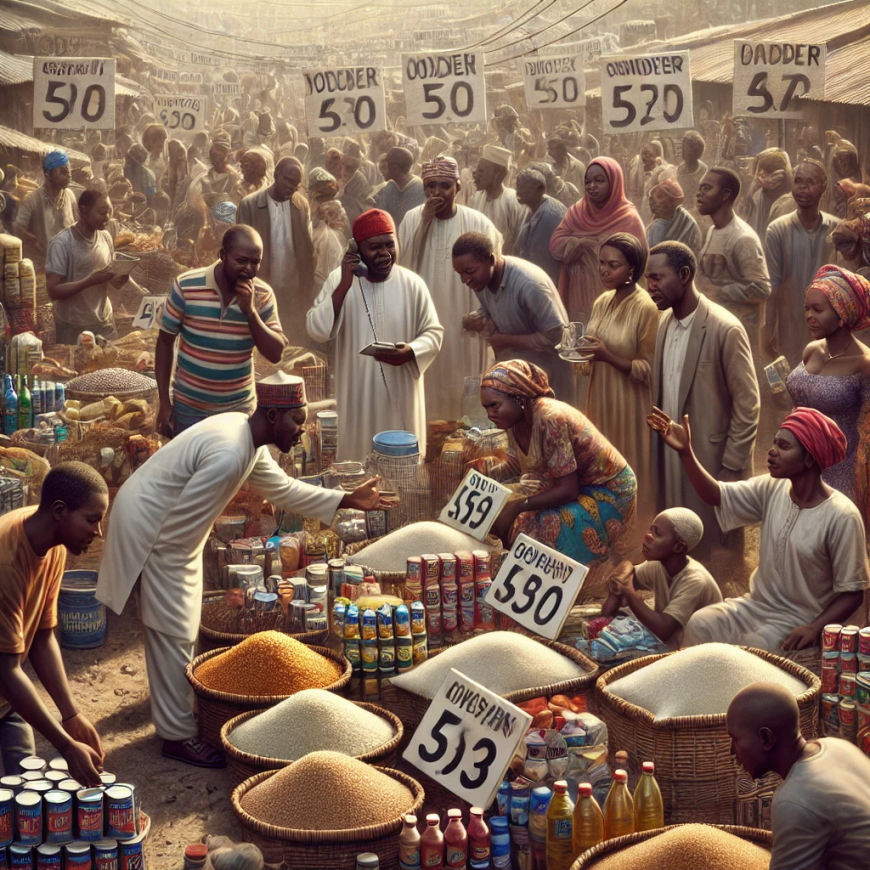PROFTEERING AND GREED HAVE DONE US MORE HARM THAN THE FUEL SUBSIDY
Profiteering, the act of making unreasonable profits during crises, has become deeply ingrained in Nigeria’s economy. From the 2022–2023 cash crunch to the post-subsidy inflation, businesses and service providers continue to exploit consumers, prioritizing profit over fairness. Despite declining costs, prices remain high due to greed, not just government policies. Historical trends show that price hikes often occur regardless of policy impact, revealing a broader culture of economic exploitation. While government actions contribute to hardships, the greater issue lies in societal greed and artificial inflation. True economic change requires addressing these exploitative tendencies alongside policy reforms.

The word “Profiteering” comes from the root ‘profit’ which originates from the latin word ‘proficere’, meaning, “To make progress” or “To benefit”. The verb “profiteer” emerged in English around the early 20th century, particularly during the third world war 1, when it was used to describe individuals or businesses that took advantage of wartime shortages to change exorbitant prices. According to Merriam-Webster, “profiteering” is the act or activity of making an unreasonable profit on the sale of essential goods especially during time of emergency. Unfortunately, these extortionate and exploitative tendencies have become an ingrained flaw among sellers, service providers and most businesses in Nigeria. For instance, the Nigerian currency crisis that occured between December 2022 till March 2023 saw financial service providers in the Fintech space took advantage of the cash crunch to exploit their customers. Prior to the liquidity crisis, Point-of-Sale(PoS) charges were affordable and manageable for the average Nigerians. But the currency crisis became an avenue for those in the Fintech space to extort and exploit Nigerians to the point that “money were being sold at exorbitant charges”. As expected, in a country where government policies are often blamed for economic hardships, little attention is given to the ingrained practice of imposing exorbitant and unreasonable charges as a means of extortion and exploitation. I could remember many years ago during the administration of Goodluck Jonathan, when naira plummeted against the dollar, even aged sellers at the market who were ignorant of what naira depreciation means inflated prices of their goods. The fact is, sellers and service providers have a habit of inflating prices at the slightest change in government policy regardless of whether the policy directly influences their extortionate and exploitative decisions or not.
During his inaugural speech as Nigeria's president at Eagle Square, Abuja., on May 29, 2023., President Bola Ahmed Tinubu controversially declared, “subsidy is gone”. The impact of the subsidy removal has had a negative impacts on the economy and the biggest victims have been the ordinary Nigerians who have struggled to navigate the the harsh economy amid inflation and skyrocketing commodity prices. In his article titled, “Economic Struggle: These commodities prices show how Nigerians have fared since May 2023”, published on May 12, 2024, Taofeek Oyedokun gave the following breakdown:
“A medium-sized sliced bread priced at N750 in May 2023, now sold at N1,400. The cost of a piece of egg rose from N100 to N200, and the cost of a crate of eggs rose from N3,500 to N4000 within the same period. Also, foreign parboiled rice in a 50 kg bag ranges between N75,000 and N77,000, compared to N30,000 to N33,000 in May 2023. Local parboiled rice in a 50 kg bag now sells for N65,000 to N70,000, up from N30,000 before Tinubu’s administration. A derica of beans has surged from N500 to N1,300, and a 25-litre container of vegetable oil is now priced at N45,000. A paint of garri now priced N4,000 from N1,000 in May 2023.”
Meanwhile, while it's an undeniable fact that the removal of the fuel subsidy contributed to the economic hardships, it does not negate the fact that the ingrained culture of profiteering has played a larger role in shaping the present economic realities. For instance, despite the recent drop in fuel and food prices, traders and transporters continues to maintain the inflated rates, prioritizing unreasonable profit at the expense of average Nigerians who have always been at the receiving end. A PDP chieftain recently criticized the NURTW for refusing to adjust fares accordingly. The economic hardships and the escalating impacts go beyond fuel subsidy removal – The underlying factors behind our economic woes and predicament are the deep-rooted greed and profiteering ingrained in our society. Hoarding, exorbitant charges, and artificial inflation expose our insatiable appetite for profit. While fuel subsidy shaped our current economic realities, greed and profiteering have done far more damage. Blaming government policies for every problem in the country only ignores the reality that change must start with us.







